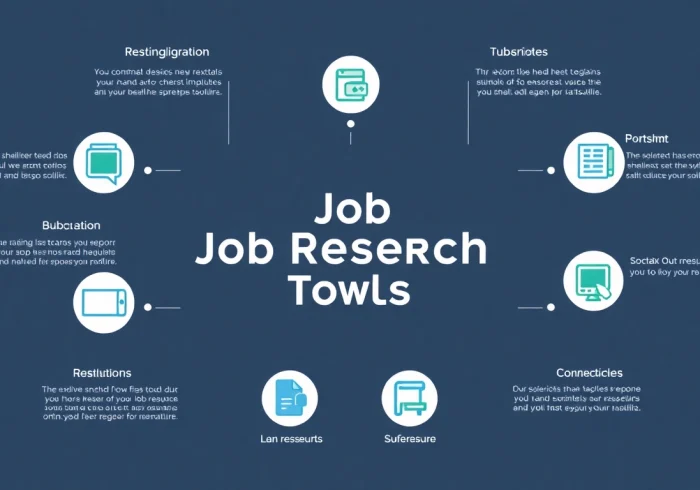Understanding Product Management Certification
Definition and Importance
Product management certification represents a formal acknowledgment of an individual’s competencies in the field of product management. Typically awarded by recognized institutions, these certifications validate that a professional possesses the required knowledge, skills, and abilities to manage products throughout their lifecycle effectively. This is essential not just for personal growth but also for gaining credibility among peers and employers in a competitive job market. With the increasing complexity of products and services in a digital economy, certifications provide a framework that equips professionals with essential methodologies and strategic approaches, thus enhancing their contribution to an organization. Individuals engaging in product management certification are taking a significant step toward not only advancing their careers but also ensuring that they stay pertinent in an evolving industry landscape.
Types of Certifications Available
There are various product management certifications available, catering to different needs, experience levels, and specific aspects of product management. Here are some notable ones:
- Certified Scrum Product Owner (CSPO): This certification is focused on Agile methodologies, especially popular in tech-oriented environments. It emphasizes skills in collaborative product ownership, stakeholder management, and delivering customer value.
- Pragmatic Institute Certifications: These certifications are designed for product managers who want to leverage market-driven product strategies. They cover a broad spectrum, including product development, marketing, and sales alignment.
- AIPMM Certified Product Manager: Offered by the Association of International Product Marketing and Management, this certification covers the entire product lifecycle, focusing on strategic thinking and operational practices.
- PMP (Project Management Professional): While not product management-specific, PMP can be relevant since it encompasses essential project management principles that product managers often utilize in their roles.
Choosing the right certification should align with one’s career goals and the particular skills one wishes to deepen or acquire.
Who Should Pursue Certification?
Seeking a product management certification is beneficial for various professionals, including:
- Aspiring Product Managers: If you’re looking to break into product management, a certification can provide foundational knowledge and make you more competitive in the job market.
- Current Product Managers: Even seasoned product managers can benefit from certifications to refresh their skills, stay updated on the latest trends, or specialize in specific areas.
- Cross-Functional Team Members: Individuals in roles such as marketing, UX, or engineering who collaborate closely with product managers can add value to their contributions by understanding product management practices through certification.
Ultimately, pursuing certification is a commitment to professional growth and enhanced capability in managing products successfully.
Benefits of Obtaining Product Management Certification
Enhanced Career Opportunities
One of the most significant advantages of obtaining a product management certification is the potential for expanded career opportunities. By earning a certification, professionals can demonstrate their expertise and commitment to the field, which can lead to larger roles and increased responsibilities. Many organizations recognize certifications as a minimum requirement for advanced product management positions, thus making it a key differentiator among candidates.
For instance, certified individuals may find themselves eligible for senior managerial or leadership roles that demand strategic insight and extensive knowledge of product lifecycles. Furthermore, certification can open doors to opportunities in various sectors, from technology to finance, manufacturing, and everything in between, broadening one’s career prospects.
Skill Development and Knowledge Acquisition
Obtaining a certification not only legitimizes one’s skills but also enhances them. Many certification programs incorporate the latest methodologies, tools, and theoretical frameworks utilized in product management, ensuring that candidates are well-versed in contemporary practices. This knowledge acquisition process involves rigorous coursework that covers essential topics such as market research, product strategy, roadmap development, and user experience, amongst others.
Moreover, these programs often include case studies and real-world applications, allowing participants to translate theoretical insights into practical skills applicable to their roles. As a result, candidates come away from these programs with a robust toolkit that boosts their efficiency and effectiveness in product management.
Networking and Professional Growth
Another compelling reason to pursue certification is the invaluable networking opportunities it provides. Product management certification programs often connect learners with instructors who are experienced professionals in the field, as well as other participants who share similar career aspirations. Engaging with this network can lead to relationships that foster collaboration, mentorship, and even job referrals.
Additionally, many organizations and industry groups offer events, workshops, and forums specifically for certified professionals. These gatherings create an environment for knowledge sharing, best practices discussions, and exposure to cutting-edge developments within the product management space. Consequently, certification can enhance not only one’s professional circle but also access to ongoing professional development resources.
Steps to Obtain Product Management Certification
Researching Certification Programs
The first step in the certification journey is thorough research. Potential candidates should explore the different programs available, considering factors such as accreditation, course content, instructor qualifications, and the organization’s reputation. It’s vital to evaluate how well the program aligns with personal career goals and the industry’s demands.
Candidates should also consider the learning format that best suits their lifestyle, whether online or in-person, part-time, or intensive bootcamps. Engaging with alumni or current participants through platforms like LinkedIn can provide valuable insights into the effectiveness and applicability of the courses offered.
The Application Process Explained
Once a suitable program has been identified, candidates must navigate the application process, which may vary from one institution to another. Common steps include:
- Completing Application Forms: Typically, applicants will need to provide personal information, educational background, and details about work experience.
- Providing Recommendations: Some programs might require letters of recommendation from colleagues or supervisors who can attest to the applicant’s skills and potential.
- Payment of Fees: Certification programs often have associated costs, which applicants should factor in. Early bird registrations or scholarship opportunities may be available.
After submitting an application, candidates should regularly check their email and account on the program’s website for updates on their application status and further instructions.
Preparing for Certification Exams
Preparation for certification exams is a crucial step that can determine success or failure in obtaining certification. Candidates should develop a structured study plan that considers the exam content outline, formats (multiple-choice, essays, case studies), and the time available until the exam date. Some effective strategies for exam preparation include:
- Study Guides and Materials: Utilize recommended textbooks, online resources, and study guides specific to the certification program.
- Practice Exams: Engaging with practice tests can help familiarize candidates with the exam format and identify areas that require further study.
- Study Groups: Collaborating with peers can enhance understanding and retention of key concepts. Study groups can provide motivation and accountability.
Moreover, managing stress through adequate self-care, such as rest and exercise, can significantly impact performance on exam day.
Challenges During the Certification Journey
Common Hurdles Candidates Face
While the journey to obtaining a product management certification can be immensely rewarding, it is not devoid of challenges. Common hurdles include:
- Time Management: Balancing certification studies with work and personal commitments can be overwhelming. Many candidates struggle to find the time to prepare adequately.
- Cognitive Overload: The volume of information covered can be extensive, which may lead to feelings of anxiety or inadequacy.
- Financial Constraints: Certification programs can be costly, and not all professionals may have access to corporate sponsorship.
Addressing these challenges can make the certification journey smoother and more manageable.
Strategies to Overcome Challenges
To navigate the common hurdles faced, candidates can implement several strategies:
- Creating a Study Schedule: By mapping out a study plan that allocates specific times for study and review, candidates can develop a sustainable routine that fits their lifestyles.
- Engaging with Support Systems: Joining study groups or forums can provide moral support and encouragement, along with additional resources for studying.
- Budgeting Effectively: Candidates should evaluate their financial situation and consider applying for scholarships, flexible payment plans, or even company funding for professional development.
Ultimately, staying organized and proactive can significantly decrease stress and enhance the chances of success in the certification process.
Time Management Tips
Effective time management is key to successfully obtaining certification while balancing other responsibilities. Here are several tips that can help:
- Prioritize Tasks: Identify high-priority tasks and those that contribute directly to certification preparation. Use tools like to-do lists or project management software to keep track of deadlines and progress.
- Set Realistic Goals: Break down study materials into achievable goals, and celebrate small wins to maintain motivation throughout the process.
- Limit Distractions: Find a conducive learning environment to study, minimizing interruptions from devices, noise, and other distractions.
These strategies can carve out pockets of time for effective study sessions, ultimately leading to a better understanding of the content and improved exam readiness.
Measuring the Impact of Certification on Your Career
Post-Certification Opportunities
Once certification is obtained, professionals often experience a surge in career opportunities. New roles may open up in management and strategy that were previously inaccessible. Employers frequently recognize certified professionals as having taken the initiative to develop specialized skills, leading to negotiations for promotions or higher salaries. Networking with other certified professionals can also yield job prospects through referrals and introductions.
Moreover, industry demand for certified individuals often leads to enhanced job security, as organizations are more likely to retain qualified product managers who contribute positively to business outcomes.
Tracking Professional Growth
After obtaining certification, it is crucial to track growth and impact on one’s career. Metrics to consider include:
- Job Performance Metrics: Assess any improvements in performance, productivity, or project outcomes prior to and after certification.
- Salary Increases: Keep track of any raises or promotions following certification to quantify its impact financially.
- Skill Application: Regularly reflect on how newly acquired skills have been applied in the workplace to navigate challenges or lead projects successfully.
Documenting these achievements can aid in future evaluations and may also bolster one’s resume for subsequent opportunities.
Real-Life Success Stories
In the world of product management, numerous success stories highlight the transformative impact of certification. For instance:
- Jane Doe: Initially working as a marketing associate, Jane became a certified product manager through a recognized program. Soon after, she transitioned into a full-time product management role, doubling her salary within two years.
- John Smith: After obtaining his certification, John led a project that successfully launched a new tech product, resulting in a 30% increase in market share for his company. His contributions earned him a promotion to a senior management position.
These narratives serve as powerful testimonials to the potential of product management certification, exemplifying how targeted learning and development can lead to substantial career advancements.



